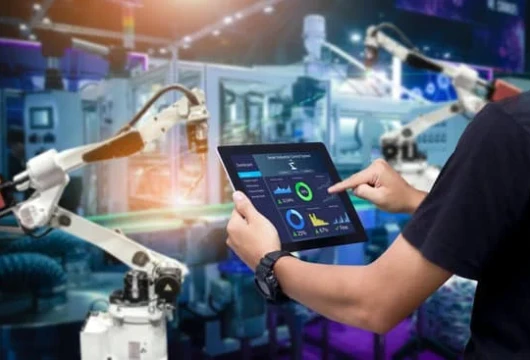As the world grapples with the urgency of climate change, higher education institutions are stepping up to the challenge by embracing digitalization and sustainability. These “SmartCampuses” are fostering a greener environment and setting new standards for how education can coexist harmoniously with responsible environmental stewardship.
SmartCampuses : Pioneering Sustainability in Higher Education
Universities have long been at the forefront of knowledge and innovation, making them ideal candidates to lead the charge in addressing climate concerns. However, the sprawling nature of campus infrastructure and energy-intensive facilities has often contributed significantly to their carbon footprint. In response, many institutions are transforming their campuses into “SmartCampuses,” where advanced technology and sustainability go hand in hand.
SmartCampuses integrate digital technologies into every aspect of campus life, from building management to resource allocation. This holistic approach allows universities to manage their operations more efficiently, reducing energy consumption and minimizing environmental impact. By adopting these technologies, higher education institutions are improving their sustainability practices and enhancing the overall campus experience for students, faculty, and staff.
Digitalization and Sustainability: The Future of SmartCampuses
One of the most significant benefits of SmartCampuses is the ability to optimize energy consumption through intelligent systems. For example, building automation solutions enable precise control of heating, ventilation, and air conditioning systems, ensuring comfort for occupants while reducing energy wastage. By creating virtual replicas of physical infrastructure—digital twins—universities can gain valuable insights into energy usage patterns, identify inefficiencies, and implement targeted measures to enhance overall energy efficiency.
Siemens Xcelerator is at the forefront of this digital transformation, providing innovative digital twin technology that allows universities to monitor and manage their energy consumption effectively. The University of East London (UEL) is a prime example of how this technology can substantially improve energy efficiency. By leveraging data analytics and real-time monitoring, UEL has reduced its carbon emissions while maintaining a high-quality learning environment.
Digitalization doesn’t just stop at energy management. SmartCampuses utilize Internet of Things (IoT) devices and sensors to gather real-time data on campus usage, space occupancy, and resource consumption. This data-driven approach empowers university leaders to make informed decisions that positively impact the environment and the campus community. By understanding the impact of various initiatives on energy consumption and carbon emissions, administrators can develop targeted strategies, set realistic sustainability goals, and monitor progress toward achieving net-zero objectives.
Collaborative Sustainability: A Call to Higher Education Leaders
The journey towards sustainability is not solitary—it requires collaboration between universities, industry partners, and policymakers. However, the true success of these endeavors lies in the commitment of university leaders to embrace digital transformation. It’s crucial to recognize that digitalization and sustainability are not isolated initiatives; they are two sides of the same coin.
Combining the power of digitalization with the imperative of sustainability creates a synergy that can lead to significant positive outcomes. As higher education institutions navigate the path to carbon neutrality, they must acknowledge the intertwined nature of these efforts. By fostering a culture of collaboration and integrating digital technologies seamlessly into campus life, universities can set a precedent for responsible environmental stewardship.
The pursuit of carbon neutrality presents an obligation and an opportunity for higher education institutions to lead by example. By embracing SmartCampuses, universities inspire the next generation to prioritize sustainability in their personal and professional lives. This commitment to a sustainable future extends beyond the campus boundaries, influencing communities and industries worldwide.
As we look towards the future, the role of SmartCampuses in achieving sustainability goals will only grow in importance. Integrating digital technologies into campus management practices offers a clear path toward reducing carbon emissions and promoting environmental responsibility. By harnessing the power of digitalization, higher education institutions can create a legacy of sustainability that will benefit future generations.
SmartCampuses represent the future of higher education, where digitalization and sustainability converge to create a better, greener world. As universities continue to innovate and lead in this space, they will inspire others to follow suit, driving global progress toward a more sustainable future.
For more in-depth analysis and inspiring climate news, click here

